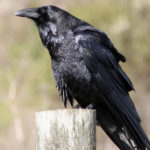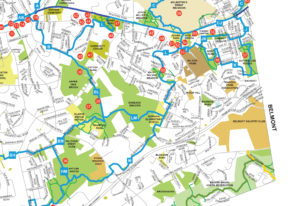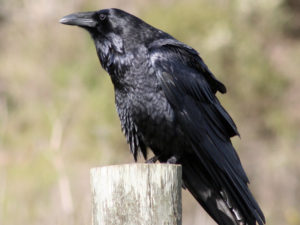
Now is the winter of our discontent. We’ve watched all the videos of past events at the Belmont Historical Society and the Charles River Watershed Association. It’s getting cold, but it may be time to get outside. Nature is a balm when screens separate you from the world.
If you’ve walked all of the Western Greenway and Lone Tree Hill, consider trying the ACROSS Lexington Challenge. Walk all 12 ACROSS Lexington trails—more than 35 miles!—record the dates, and submit your record to get a certificate and get added to the “baggers” list.
Many spellcheck algorithms replace “COVID-19,” the virus, with the word “corvid,” meaning “a bird of the crow family.” Perhaps it’s a subtle suggestion that you ought to figure out what corvids are doing around the Commonwealth. For example, you may be hunkering down with your family for the long, cold winter—but if you were a Massachusetts crow, you might be roosting with 10,000 friends and relations every night. Mass Audbon is sponsoring an online talk titled “Crows, Ravens, and Winter Roosts,” on Thursday, December 3, 7-8:30 PM. Expect to learn more about the intelligence and life history of crows and ravens, and their many clever behaviors. The cost for this program is $20 for members, $24 for nonmembers. Register for the class at www.massaudubon.org/programs.
Corvid enthusiasts can also enjoy one of the in-person field trips to a large crow roost in Springfield the Mass Audubon Arcadia Wildlife Sanctuary is offering on January 3 and 10. Literary corvid enthusiasts should look into Bernd Heinrich’s classic study of bird behavior, Ravens in Winter, or Ka: Dar Oakley in the Ruin of Ymr, by John Crowley, the author of Little, Big. A fable told by a two-thousand-year-old crow, Ka contains reflections on both corvid and human behavior as well as morality, history, and loss. At 465 pages, it’s also long enough to take up roosting sessions on long, dark winter evenings.
If you’re a little less fussy about species, Mass Audubon is also presenting an online program titled “Intro to Winter Bird Feeder Watching” on Thursday, December 10, 7-8:30 PM. Bird feeding areas provide great opportunities to learn how to identify bird species and enjoy them from a close distance, but different feeders and seed types affect what you attract. This online presentation will cover cover different winter birds, bird feeders, types of food, and what birds they attract, so you’ll be ready to participate in Mass Audubon’s “Feeder Watch’ in February. “Feeder Watch” is a national citizen science program. Counting birds at your feeders provides valuable data to scientists monitoring bird species, especially in the face of climate change. The cost for this program is $20 for members, $24 for nonmembers. Register for the class at www.massaudubon.org/programs. At least you won’t have to watch your feeder birds on Zoom.
Once you’ve filled your bird feeders, consider making the rest of your yard more lively. The Native Plant Trust is offering two online gardening talks: “Slow Gardening,” Saturday, November 14, 1-3 PM, and “Ecological Gardening,” Thursday, December 3, 6:30-7:30 PM. “Slow Gardening” is about doing more with less effort. The description reads: “Why wait for the last minute to plan and prepare your gardens? Save your back and knees from all that weed and turf removal! Learn some passive, elegant, and simple techniques to let nature do the work for you. A little prep now will give you a fresh start come next spring.” The cost is $30 members, $36 nonmembers. Register at nativeplanttrust.org.
One you know how to save your knees, you can garden to save your ecosystem. “Ecological Gardening” tackles topics like how to take a wildlife-friendly approach to gardening, and how to manage perennials, trees, and shrubs for health, beauty, and wildlife value as winter approaches. This session is $12 members, $15 nonmembers. Register at nativeplanttrust.org.




Sorry, the comment form is closed at this time.